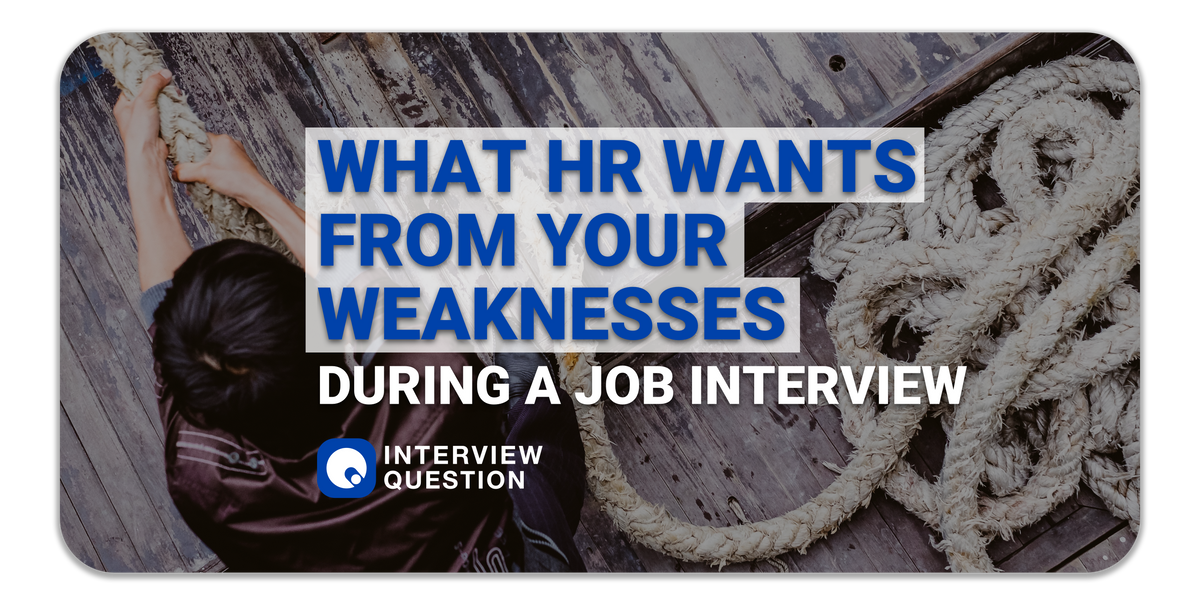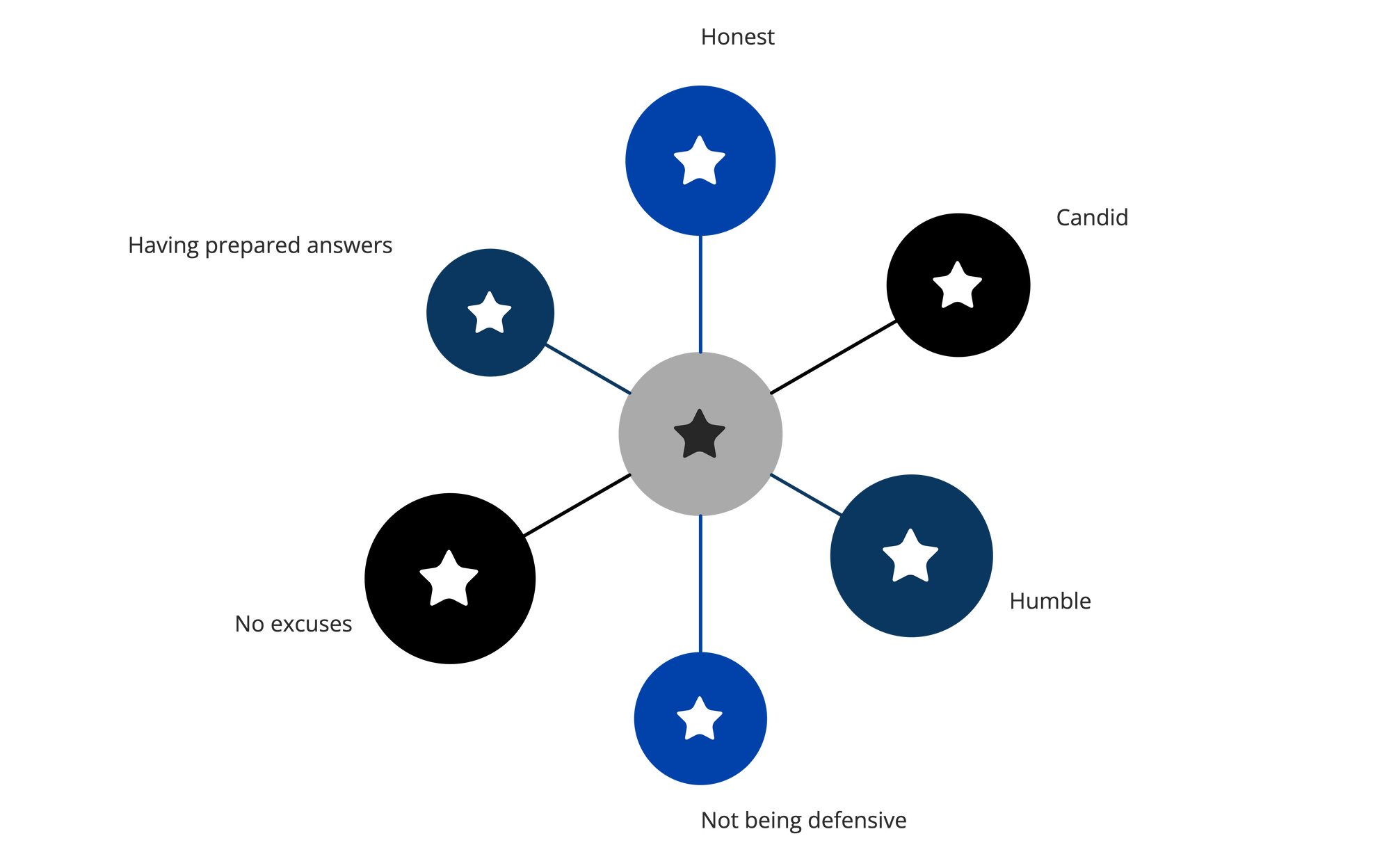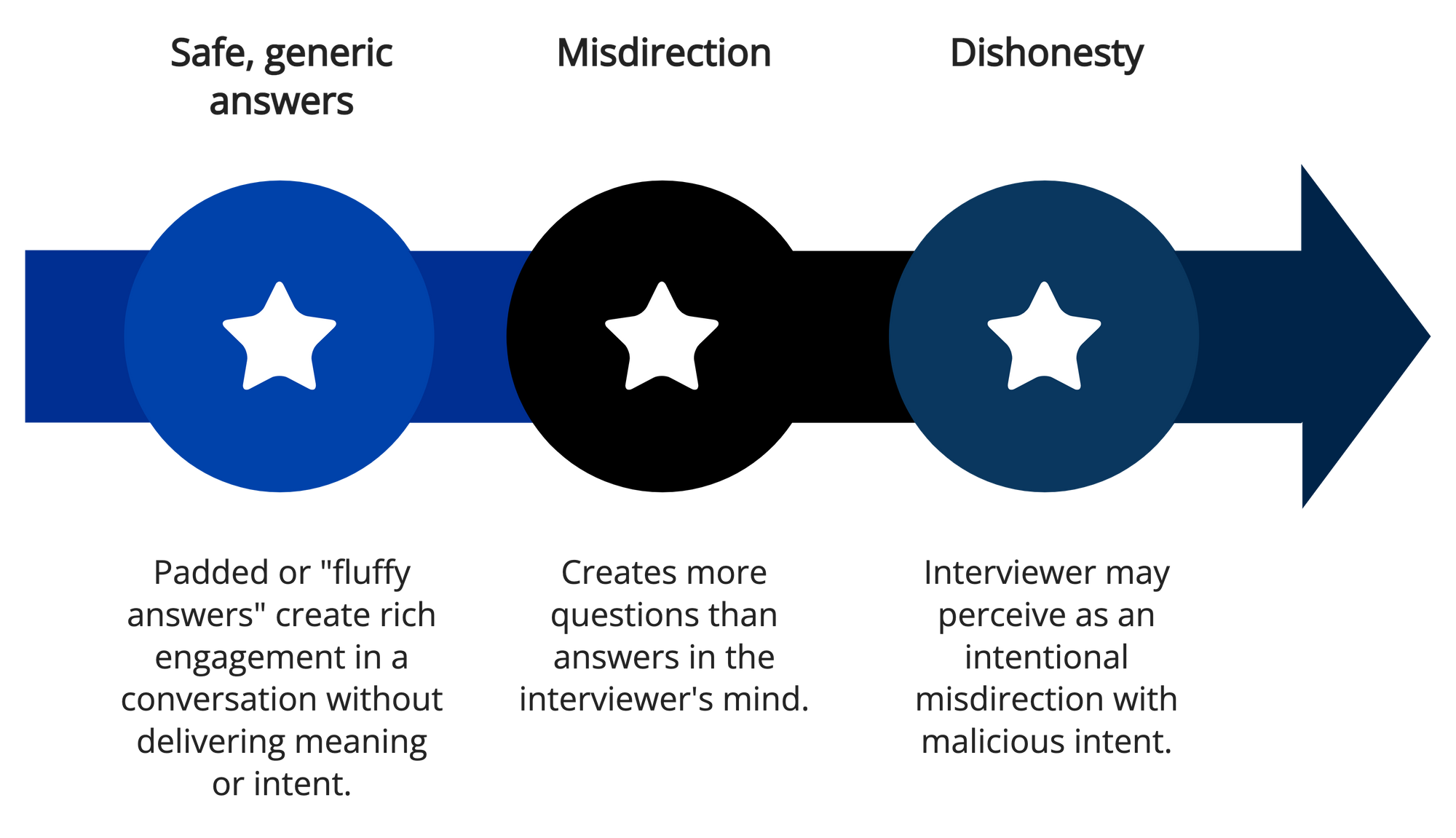What HR Professionals Really Want From Your Weaknesses During an Interview
When you're asked about your weaknesses in an interview, don't try to fake it 'til you make it. HR professionals can see right through that.

This article provides tips on how to discuss your weaknesses in a way that will impress HR professionals.
In an ideal world, every job candidate would be forthcoming and honest about their weaknesses during an interview. However, in the real world, many job candidates try to downplay or hide their weaknesses in an attempt to appear more qualified for the position. So, what do HR professionals really want from your weaknesses during an interview?
HR professionals want to see that you are aware of your weaknesses and that you are taking steps to improve upon them. They also want to see how you handle difficult questions about your weaknesses. Are you able to remain calm and collected? Or do you get defensive and flustered?

Finally, HR professionals want to know if you have any strategies for overcoming your weaknesses. Do you have a plan for dealing with your shortcomings? If so, what is it?
By sharing this information with HR professionals, you will show that you are proactive and serious about self-improvement – two qualities that are highly valued in any employee.
Content that HR Professionals Wants to Hear About Your Weaknesses
When interviewers ask about your weaknesses, they are really trying to find out two things: (1) if you have any self-awareness and (2) how you deal with adversity.

Therefore, the best way to answer any personal weakness question is to be honest and give a real example of a time when you faced a challenge at work and what you did to overcome it. Not only will this show that you are introspective and able to learn from your mistakes, but it will also demonstrate that you are resilient – two qualities that all HR professionals want in their employees.
In every job interview, employers will ask you to share your weaknesses. This question is designed to test your self-awareness and honesty. Employers want to see if you're able to identify areas for improvement and take actionable steps to improve them.
When answering this question, avoid generic or vague responses like "I'm a perfectionist" or "I work too hard." Instead, focus on sharing a specific weakness that's relevant to the role you're interviewing for. For example, if you're applying for a position that requires excellent written communication skills, you might say something like "I sometimes have trouble communicating my ideas clearly in writing." Then follow up with what steps you've taken to improve this skill, such as taking a class or working with a mentor.
By sharing an honest answer about your weaknesses, you'll demonstrate your commitment to personal growth and development - two qualities that are highly valued by HR professionals.
How to Best Talk About Your Weaknesses in an Interview, According to HR Professionals
According to HR professionals, the best way to talk about your weaknesses in an interview is to be honest and candid. It enhances the humbleness of the candidate and show that he is willing to learn and improve.

Be sure to avoid sounding defensive or making excuses for your shortcomings. Instead, focus on how you have overcome challenges in the past and what steps you will take to improve in the future.
HR professionals also suggest preparing ahead of time by thinking about potential questions related to your weaknesses so that you can go into the interview with confidence. Have some rehearsed lines, or general pointers you can use later.
Ultimately, don't try to hide your weaknesses or make excuses for them. If your weaknesses don't show during the interview stage, then when it reveals its ugly head when you are actually on the job, your perceived work performance will take a bad hit. Instead of hiding these weaknesses, focus on how you're working to improve upon them.
For example, if you're not the strongest public speaker, mention that you're taking a class or attending workshops to help build your confidence. Also explain that you have been working on addressing this by doing mock interviews with friends or family members. By being open and honest about your weaknesses, you'll show that you're self-aware and eager to learn and grow. HR professionals will be more likely to see your potential as a strong candidate for the job.
What You're Doing Wrong When Answering Questions About Your Weaknesses in a Job Interview
You're not giving a real answer
Another trap people fall into is giving a safe, generic answer that doesn't actually address the question. Many people call answers without meaningful content "fluff" or "fluffy answers". Such replies beat around the bush in a bid to avoid giving an actual answer. Do it enough times and the interviewer may be convinced take the position that the intentional misdirection could be dishonesty instead.

For example, if you're asked what your biggest weakness is and you respond with something like "I sometimes lose control and organisation when work comes from multiple people and I get overwhelmed" that's not really answering the question. A better response would be specific and illustrate how you've taken steps to improve upon this weakness, such as taking a class or joining Toastmasters. (a.k.a. giving a full answer with multiple sentences)
You're not being honest
Everyone has weaknesses, so don't try to act like you don't have any. Honesty is always the best policy when it comes to job interviews. This is the most common mistake people make when asked about their weaknesses. They try to sugarcoat their answer or avoid the question altogether by saying something like, "I work too hard" or "I'm a perfectionist." Honesty is always the best policy in an interview – your interviewer will appreciate it and respect you for it.
You're giving too much information
When asked about your weaknesses in a job interview, keep your answer short (the sweet spot is between 2 to 4 sentences) and to the point.
Don’t go into too much detail or ramble on; this will only make you look bad. Lengthy answers on bad stuff about you makes you look worse than you actually are. When discussing your weaknesses, stick to topics that are relevant to the job and leave out any personal details that aren't necessary.

Empty vessels make the most noise. Say less, and with those few words you say, make them count.
For example, there's no need to share that you have anxiety unless it directly relates and affects to the role you're interviewing for (e.g., customer service representative).
You're not turning your weakness into a strength
When answering questions about your weaknesses in a job interview, always try to spin things positive by turning your weakness into a strength. For example, if you tend to be shy around new people, you could say that it just takes you some time to warm up but once you do, you can build great relationships.
Conclusion
In summary, HR professionals want to know that you're aware of your weaknesses and that you're actively working to improve upon them. Honesty is always the best policy when it comes to interviews, so don't try to hide your weaknesses or downplay their importance.
Focus on how you're addressing your weaknesses and what steps you're taking to become a stronger candidate. By doing so, you'll show that you're self-aware and motivated to improve, both qualities that HR professionals value in employees.
